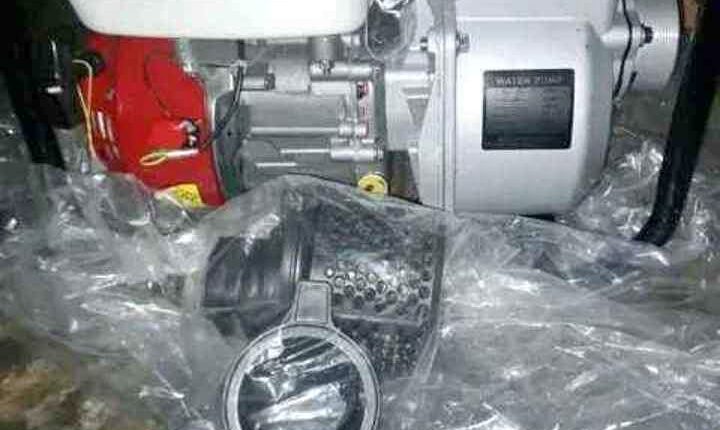Power is critical in driving industries as well as commercial activities in any economy, and therefore massive investments must be made in the energy sector to ensure real growth and economic development.
Between late 2012 and 2016, Ghana experienced a severe electricity crisis called Dumsor. The crisis triggered a severe power rationing program resulting in heavy load shedding throughout the country.
Such electricity crises often happen in Africa, especially in Nigeria which hinders economic growth.
Fast forward to 2024, the challenge of erratic power supply has resurfaced.
Ghanaians have been experiencing unstable power supply in various parts of the country since February 2024.
Consequently, the Minority in Parliament, civil society organizations (CSOs), and energy sector players have called for an ECG load-shedding timetable to help citizens plan their daily activities.
Many power consumers believe that the country’s power outages are akin to an era of frequent blackouts, which birthed the term ‘dumsor’.
However, the national power distributor ECG said the company was not undertaking any load shedding that requires a timetable.
After remaining surprisingly silent amid intermittent power outages in the country, the Ghana Grid Company Limited (GRIDCo) petitioned the Energy Minister on April 4 warning of possible disruptions in power supply for customers.
Indeed, GRIDCo reiterated that the National System Control Centre (NSCC) had requested ECG to provide a timetable due to the unavailability of the maximum grid capacity; however, ECG’s reluctance to comply with this request poses a significant risk to the stability of the national grid.
Given the wide scope of businesses that are dependent on electrical energy, in periods of power rationing, productivity grinds to a halt in the capital.
There have been calls from energy sector players to the government to prioritize investments in renewable energy sources as an alternative.
According to them, energy sources such as solar and wind are good alternatives amidst the ongoing power crisis.
One reliable source of power is the generator.
The power rationing in the country has led to an increase in generator use by shops and businesses in Ghana.
The sale and supply of generators have become booming ventures for suppliers and retailers who deal in them.
Today, managers of businesses that depend on electric power such as hairdressers, tailors, audio and video media sellers, mobile phone repairers, and laundries, all try to grab small or medium-sized generators to enable them to stay in business.
These generators create electrical currents through mechanical processes, they depend on noisy, environmentally unfriendly gasoline or diesel-fed engines.
The more expensive generators are quiet but many shops and businesses can only afford the cheaper ones.
Sharon Quaye is one of the few dealers with stocks of generators at her shop.
She told theghanareport.com, “The demand has started going up since February 2024”.
Before February, she sold one generator for just GH¢1,120 but the same item now costs between GH¢ 1480 to GH¢ 1700 for a standard gasoline generator.
Between 2022 and January 2024, she was selling 10-13 sets of generators monthly but she could now sell up to 5 daily, with demand progressing each day.
Current indicators, however, seem challenging due to the increment in the exchange rate volatility.
According to Bloomberg reports, the cedi has lost close to 9% value in the first three months of 2024 making it the third worse performing currency next to Nigeria and Egypt.
Continuous depreciation of the cedi will lead to an increase in the cost of import, which will translate into the cost of goods and services, thus raising inflation.
Most of the generator sellers at Makola, Tudu, and Tema stations admitted that business was booming for them. This was evident from the fact that every shop that sold generators had anxious customers examining various models before they bought them.
Some buyers that we chanced upon, however, were negotiating with sellers to buy the generators on credit.
Currently, prices of the generators start from GH¢1,500 for a 2.9 kilovolts-ampere (kVA) generator, while the largest size, which uses 25 gallons of diesel, sells between GH¢9,900 and GH¢19,562, depending on the brand.
As far back as 2007, Accra-based brokerage firm, Databank, reported that businesses were spending the equivalent of $62m a month on alternative sources for electrical energy generation in response to power outages.
In an interview with some of the generator sellers, they disclosed that apart from the increase in demand, there has also been an increase in sales of generator parts.

“As you know previous power outage periods made many people purchase generators for which they now needed parts for replacements,” a retailer in the Tudu area mentioned.
Users therefore have to contend with maintenance costs.
Initially, the rate of purchase was slow, and they had a lot of generators at the shop.
“However, in the last month, wholesalers and importers don’t supply them regularly,” Mr. Francis Boadi, a dealer indicated.
H said the price of a standard generator had not gone up that much, even though the frequency of purchase had shot up drastically.
“At first I could stock only 80 sets of generators maybe for the whole year, but now people are buying more”.
It is not surprising therefore that some people who spoke to theghanareport.com expressed the concern that with the unavailability of small to medium-scale generators, many Ghanaians are falling through the cracks in terms of access to basic electricity.



